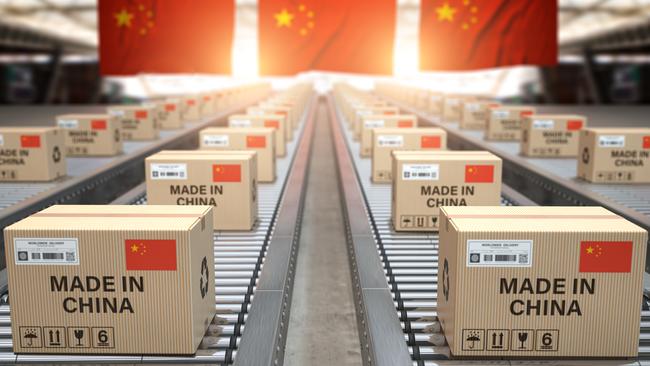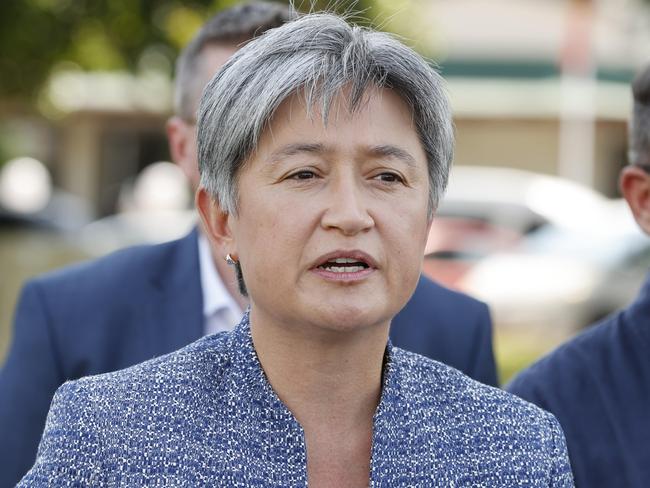Federal election 2022: ALP to crack down on forced labour
Major companies that import goods from China would have to guarantee their supply chains were free from Uighur forced labour under an Albanese government plan.

Major companies that import goods from China would have to guarantee their supply chains were free from Uighur forced labour under an Albanese government plan to tackle modern slavery.
Labor would establish an independent anti-slavery commissioner, to be located within the Attorney-General's Department, which would publish an annual list of countries, regions and industries associated with high levels of slavery. “Companies importing from these places would be required to prove goods are not made with forced labour,” opposition foreign affairs spokeswoman Penny Wong said.

A 2020 Australian Strategic Policy Institute study found 82 global brands – including Apple, BMW, Gap, Huawei, Nike, Samsung, Sony and Volkswagen – used factories linked to Beijing’s “Xinjiang Aid” forced-labour program.
The Morrison government’s Modern Slavery Act, introduced in 2018, requires businesses with revenues of more than $100m to assess their risks of having slave labour in their supply chains.
Senator Wong, who will debate Foreign Minister Marise Payne at the National Press Club on Friday, said the law was a “box-ticking exercise” because it imposed no penalties for noncompliance. She said Labor would strengthen the act, requiring the Australian Border Force, the Australian Sanctions Office and Austrac to support its proposed anti-slavery commissioner.
It would also consider imposing targeted sanctions on foreign companies, officials and entities known to be profiting from forced labour and other human rights abuses.
Senator Wong said Labor’s changes would be “country agnostic”, aiming to eliminate forced labour from the supply chains of Australian firms “The world is witnessing a growing number of horrifying reports of forced labour and human rights violations,” she said. “When it comes to tackling this, Mr Morrison has decided it is not his job. That sends a poor message to the rest of the world.
“This is a global problem. We want to work with partners around the world to deliver an effective, comprehensive approach to tackling modern slavery wherever it is occurring.”
The policy follows a study by a coalition of human rights organisations earlier this year, which found nearly 80 per cent of companies covered by the Modern Slavery Act were failing to comply with its requirements. About half failed to identify obvious modern slavery risks in their operations or supply chains. Only one in four garment companies sourcing from China identified the risk of forced Uighur labour in their supply chains.
ASPI’s report, Uighurs for Sale, estimated more than 80,000 Uighurs were transferred out of Xinjiang between 2017 and 2019 to work in factories across China, but suggested the actual figure was likely to be far higher. “It is extremely difficult for Uighurs to refuse or escape these work assignments, which are enmeshed with the apparatus of detention and political indoctrination both inside and outside of Xinjiang,” the report said. “In addition to constant surveillance, the threat of arbitrary detention hangs over minority citizens who refuse their government-sponsored work assignments.”
Australia’s strained relationship with China, and Beijing’s new security pact with Solomon Islands, are likely to dominate Friday’s foreign affairs debate.
Scott Morrison pushed back on Thursday against Chinese ambassador Xiao Qian, who said China’s activities in the region were not a threat to Australia. Anthony Albanese said it was clear China had changed, and was now “more aggressive”.




To join the conversation, please log in. Don't have an account? Register
Join the conversation, you are commenting as Logout